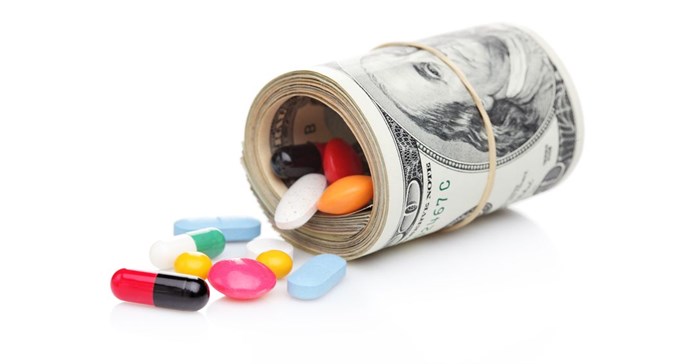
Top stories






More news





ESG & Sustainability
#Sona2026: President announces crisis committee to tackle SA's water challenges









In 2014, the UK government tasked economist, Jim O’Neill, to investigate the impact antimicrobial resistance (AMR) is likely to have on the world and the results are quite scary. His recently published Review on Antimicrobial Resistance indicates that without policies to stop the worrying spread of AMR, today's already large 700,000 deaths annually would become an extremely disturbing 10m every year, more people than currently die from cancer.
“Indeed, even at the current rates, it is fair to assume that over 1m people will have died from AMR since I started this review. This is truly shocking. As well as these tragic human costs, AMR also has a very real economic cost, which will continue to grow if resistance is not tackled. The cost in terms of lost global production between now and 2050 would be an enormous US$100trn if we do not take action,” he says in the foreword.
Already since the review was commissioned, new forms of resistance have emerged, such as the highly disturbing discovery of transferable colistin resistance, reported in late 2015.
O’Neill says there has already been some exciting progress, which included:
The review suggested that there be increased surveillance especially in developing countries, and already the UK government has initiated the Fleming Fund and has contributed UD$375m to it.
Both the UK and Chinese governments have each already agreed to contribute UK£50m to a new Global Innovation Fund, aimed at funding research into new antimicrobials and diagnostics. This fund will need to grow internationally and partner with other existing sources of funding for AMR, to fill the gaps left by traditional funding streams and make sure existing and new funding streams are well coordinated for the benefit of researchers everywhere in the world.
The review also outlines a 10-point plan in which four interventions are going to be particularly important.
To educate people, especially children and teenagers, about the problem of drug resistance. O’Neill calls for international campaign developers, industry experts, and non-governmental organisations to consider how they could help to support an urgent global campaign on AMR.
The report points out that there has been little or no development of new antibiotics for decades, largely because they are acute medication and aren’t really money spinners for pharmaceutical companies.
He suggests that countries review carefully how they buy and price antibiotics, to reward innovative new drugs without encouraging unnecessary use of new antibiotics. Also that alliances such as the G20 get together and provide a reward to developers of new antibiotics after they are approved for use by patients.
“These market entry rewards, of around US$1bn each would be given to the developers of successful new drugs, subject to certain conditions to ensure that the new drugs are not ‘over-marketed’ and yet are available to patients who need them wherever they live. It is great to see this idea already being discussed by senior G20 officials. I hope this discussion will translate into tangible action during their Heads of States’ meeting in September,” he says.
O’Neill calls for a step change in the diagnostic technology available, pointing out that there aren’t enough good and rapid tests to confirm the professional judgment of the doctor, as to whether the infection is bacterial or not.
“I call on the governments of the richest countries to mandate now that by 2020, all antibiotic prescriptions will need to be informed by up-to-date surveillance information and a rapid diagnostic test wherever one exists. This will open the door to investment and innovation, by showing clever developers that if they build rapid tests they will find a market for them,” O’Neill explains.
Once the technology has improved, markets in developing countries can be supported with a system, not dissimilar to the great work that Gavi, the Vaccine Alliance, has done to improve global child vaccination.
Another aspect that needs to be investigated in many parts of the world is the extent of antibiotic use in the agricultural sector. “We have then proposed that targets should be set by individual countries for antibiotic use in agriculture, enabling governments to have the flexibility to decide how they will reach lower levels of use. Alongside this we need to make much faster progress on banning or restricting the use in animals of antibiotics that are vital for human health."
There are a number of ways to raise the funding required for action from the public or the private sector: the amounts are very small in the context of both spending on healthcare and the costs of rising AMR.
Given that antibiotics are a shared resource that society and the pharmaceutical industry depend on, there is a strong case for pharmaceutical companies investing in AMR to sustain their own revenue from other sectors such as oncology or surgical operations.
“That is why I have proposed that governments should consider a small levy on the pharmaceutical sector, as one of the options to raise funding for the market entry rewards for new antibiotics. I would find such a funding mechanism particularly attractive if it could be applied on a ‘pay or play’ basis, where those firms who invest in R&D that is useful for AMR can deduct their investment from the charge owed by all players within the industry,” O’Neill says.
“Although AMR is a massive challenge, it is one that I believe is well within our ability to tackle effectively. The human and economic costs compel us to act: if we fail to do so, the brunt of these will be borne by our children and grandchildren, and felt most keenly in the poorest parts of the world,” his foreword ends.